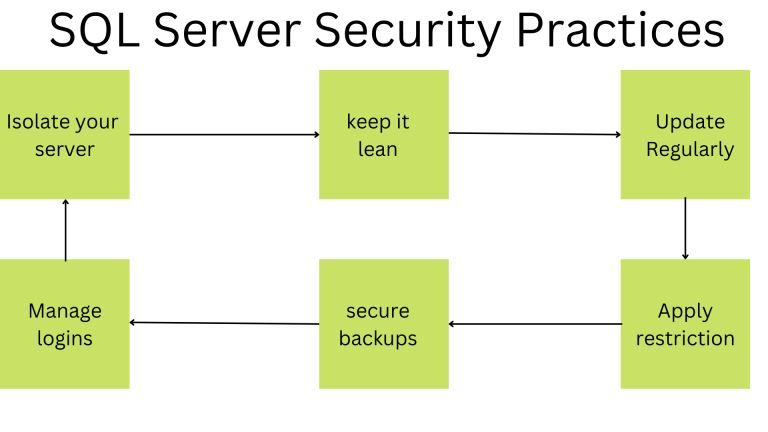Qualities People Are Looking For in Every SQL Server Manager
Do you know the qualities you should look for in an SQL server manager? If you don't know yet, don't worry because this article is created specifically for you. It's well-researched to help you learn the qualities you should look for in an SQL server manager. There's a lot for you to learn as you read on.
There are several qualities that people look for in an SQL server manager, such as; object explorer, SQL server security management, backup and restore, query editor, query execution plan, template explore, and table designer. Keep reading for finer details.
Learn more about the top tips in SQL and the differences between MySQL and SQL server managers.
Qualities People Are Looking For in Every SQL Server Manager
Most businesses depend on technology to enhance business productivity and efficiency. How a company handles, stores, and uses its data will determine how relevant the company will be and how long it will last. Microsoft SQL server changes the business outlook, and it makes business information accessible and safe at the same time. The SQL server manager uses the SSMS to configure, manage and administer all the components in the SQL server.
The qualities of a Good SQL server will help you know what to expect when purchasing a server and how it should operate. Also, to make informed decisions.
What are the qualities you should look for in every SQL server manager?
1. Object Explorer
When looking for a good SQL manager, choose one that offers a hierarchical view of server objects. Object explorer will allow you to;
- Search for a specific object
- View and edit
- Manage the objects
- Run custom reports.
2. SQL Server Security Management
The SSMS deals with SQL server security by creating usernames and configurations that can control who accesses what. Security is an essential issue in every server. Thus, most people will look for a secure SQL server manager with tools to keep hackers at bay. Let's look at SQL server Security practices.
3. Back-Up and Restore
Knowing that you will be able to access your files is an essential factor to consider in the event of a technical failure. People store data to retrieve them whenever they want to use their data. Hence, a SQL server manager should be able to back up and restore data quickly. As a business, you can lose valuable clients when your stored data disappears and becomes inaccessible to the users; hence your business data need to be up and running.
4. Query Editor
SQL uses the SSMS because of its ability to write, execute and debug the T- SQL code. To effectively perform those functions the SSMS provides an advanced SQL query editor to perform those functions effectively. When you start typing a legend, the debugged code will give you various variants you can choose from, making the process faster and more accurate. The query editor's other valuable tasks are;
- Code formatting
- Commenting on selected lines
- Code line numeration
- Code execution
- Saving the results to a particular file.
What is the Difference between MySQL and SQL Server?
MySQL server. However, despite the many difference, both have their advantages. If you want an informed understanding of Relational Database Management Systems (RDMS), then you should know how SQL and MySQL operate. As much as we know the differences between the two servers, it isn't easy to differentiate their usefulness.
You can choose either of them depending on the specifications you are looking for in your business. The highlighted differences will aid you in knowing both servers' basic syntax and database management tools.
Below are the differences between the SQL server and the MySQL server:
| SQL Server | My SQL Server |
| Microsoft develops MySQL | Oracle develops the SQL server |
| It supports a programming language that manages relational database—management systems (RDBMS) like c++, java, and visual Basics. | It extends running support for languages like Tcl using SQL. |
| It needs a large amount of functional storage space. | It needs less amount of functional space. |
| In SQL, the server is independent of the database; hence you can perform other operations on the database during data backup sessions since the server does not block the database when backing up data. | The server blocks the database when backing up the data minimizing data corruption and manipulation when changing from one version of MySQL to another. |
| It's not free. | It is an open source and thus freely available. |
| It is highly secured and does not allow any—kind of database file manipulation while running. | Not fully secured and allows file manipulation while running as it will enable third-party processors to manipulate data files during execution. |
| Available in multiple editions. | Available in MySQL standard editions |
| It does not support any connector. |
MySQL comes with an inbuilt tool, the MySQL workbench, that enables creating, designing, and building databases. |
SQL queries and operating database systems |
MySQL allows you to handle, modify, delete, and store data in an organized manner. |
| SQL follows a standard format where the basic syntax and commands used for RDBMS remain the same as it uses language |
MySQL frequently updates as software. |
| SQL Supports only a single storage engine. |
MySQL offers support for multiple storage engines, enhancing its flexibility. |
|
SQL is an open-source language, so you should not expect community help when you have issues. You will have to Rely on Microsoft SQL server support. |
Being an open-source platform, MySQL offers robust community support. |
Both the SQL and MySQL servers are essential to business owners. They perform different roles; thus, choose the one essential to your business. Alternatively, you can use both servers to get better results.
What are the tips about an SQL manager you should know?
Every day there is something new to learn about SQL. New tips, trends, advanced technology, and a lot more should make you eager to stay updated. Here are the tips you should know about SQL server manager;
- Businesses use the query execution plan to obtain SQL query results.
- The server will analyze the command issued by the SQL and then execute the command effectively.
- You use the SSMS to view the query execution plan and identify the most profitable operation.
- Templates contain ready-made SQL scripts that create databases, tables, views, indexes, stored procedures, and functions.
- Template explore has a variety of predefined templates that you can select. Alternatively, you can customize your template to cater to your business. People will go for a server that offers a variety of templates for their business to be competitive.
- A table designer will let you visualize and analyze tables in the database.
- Table designer allows you to create, edit and delete the table and its component. You can perform these tasks without initiating the SQL code.
- The table designer is essential, especially when you want to keep track of your stock and profits.
- Using a table will make the process more effective.
Conclusion
Data storage had drastically improved from when people used to store data manually. Storing data during that era was challenging, as saving information for future use was impossible. Today, we dwell in a digital world where information is stored electronically, making saving and retrieving the same information to be an easy task. Databases can store and protect all the information that you might need. We have discussed the qualities people look for in every SQL server manager and the differences between SQL and MySQL servers. The differences are beneficial when you decide to do data analysis. Guru solutions are expert in SQL server management services. Reach out for help.













